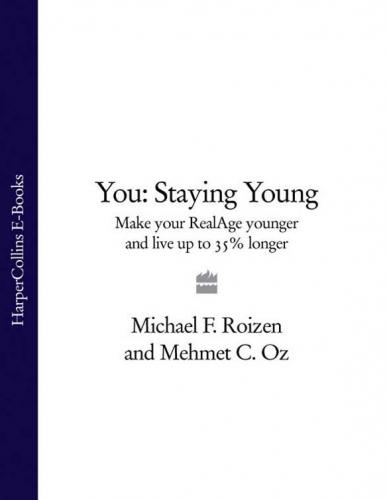YOU Tip: Act Out. People who experience high levels of chronic stress typically fall into a very common cycle of destruction. We’re stressed, so we eat onion rings. We’re stressed, so we don’t have to time to exercise. We eat terribly and don’t get up from our desk, so we’re stressed. It’s a cycle that makes us fat, lazy and depressed – and depressed that we’re fat and lazy. While we know we need to change, many of us just can’t seem to get motivated. But here’s how you can. Instead of waiting for motivation to change your actions, do something to stimulate motivation (like taking a ten-minute walk or doing stretches at your desk). You may find that when you act out something healthy, the willingness then follows.
YOU Tip: Get a Day Planner or Use That PDA. Part of what makes life so stressful is uncertainty. It’s why heavy traffic, computer crashes and customer-service reps who couldn’t care less about customers are so #@&!-ing frustrating. Because so much of life is unpredictable, it helps to maintain a regular schedule and track all your responsibilities that lie ahead. Better to clutter a piece of paper with a to-do list than to clutter your brain with how-will-I-do-it-all worries. While you’re at it, the other thing you can do with your pen is a nightly gratitude journal. Write down one or more things every day that you appreciate. The action helps puts your stressors in perspective.
YOU Tip: Enlist the Pros. Some things are easy to do alone (we’ll let your imagination figure that one out). But dealing with life’s major stressors isn’t one of them. In the face of trauma, depression or grief, many of us retreat into our own thoughts and lives and become more inaccessible than a bank vault. But that’s the time when you most need therapists and support groups. Treat depression like it’s a broken leg, because it’s every bit as much of a physical problem as any other health issue.
Major Ager Declining Defences Why Bacteria and Viruses May Be Your Most Powerful Enemies
The word infection means different things to different people. For a city, infection can be bad publicity. For your body, it can mean green mucus oozing from nostrils or ingrown toenails that are more inflamed than an irate boss. Parents may think of ear infections, women may think of yeast infections, and teens usually think of the zitty infections that can ruin a day, a date or some very fragile self-esteem.
All of those examples certainly fit our classical definition of infection: when some foreign invader is attacking our bodies, and our bodies are working hard to show it the anatomical exit door.
When it comes to ageing, however, we’re concerned not only with the acute infections – the bacteria and viruses that make you sick. We’re also concerned with the chronic infections: when bacteria and other germs trigger a behind-the-scenes inflammatory response in your body that ages your entire system. This kind of inflammatory response predisposes you to more cell replications, which increases the risk of mutations that can lead to cancer. As you see in Figure D.1, just as a plague scares away visitors from our metaphorical city, you may not want to live in your own body after a while.
Figure D.1 Tainted Image An infection is like bad press for a city: news spreads and spreads, and infects the image of the city for a long time. The reverse is also true; “best cities to live in” lists give towns years and years of good publicity.
Much of the ageing process is a side effect of defence mechanisms that our body has designed – and infection might be the best example of all. Historically, infections are what killed us, and even fifty years ago, pneumonia was called an old man’s best friend. Viral infections still cause cancers, like some lymphomas, cervical cancer and perhaps prostate cancer, while bacterial infection of your gums can increase your risk of pancreatic cancer, heart disease and stroke.
Конец ознакомительного фрагмента.
Текст предоставлен ООО «ЛитРес».
Прочитайте эту книгу целиком, купив полную легальную версию на ЛитРес.
Безопасно оплатить книгу можно банковской картой Visa, MasterCard, Maestro, со счета мобильного телефона, с платежного терминала, в салоне МТС или Связной, через PayPal, WebMoney, Яндекс.Деньги, QIWI Кошелек, бонусными картами или другим удобным Вам способом.
